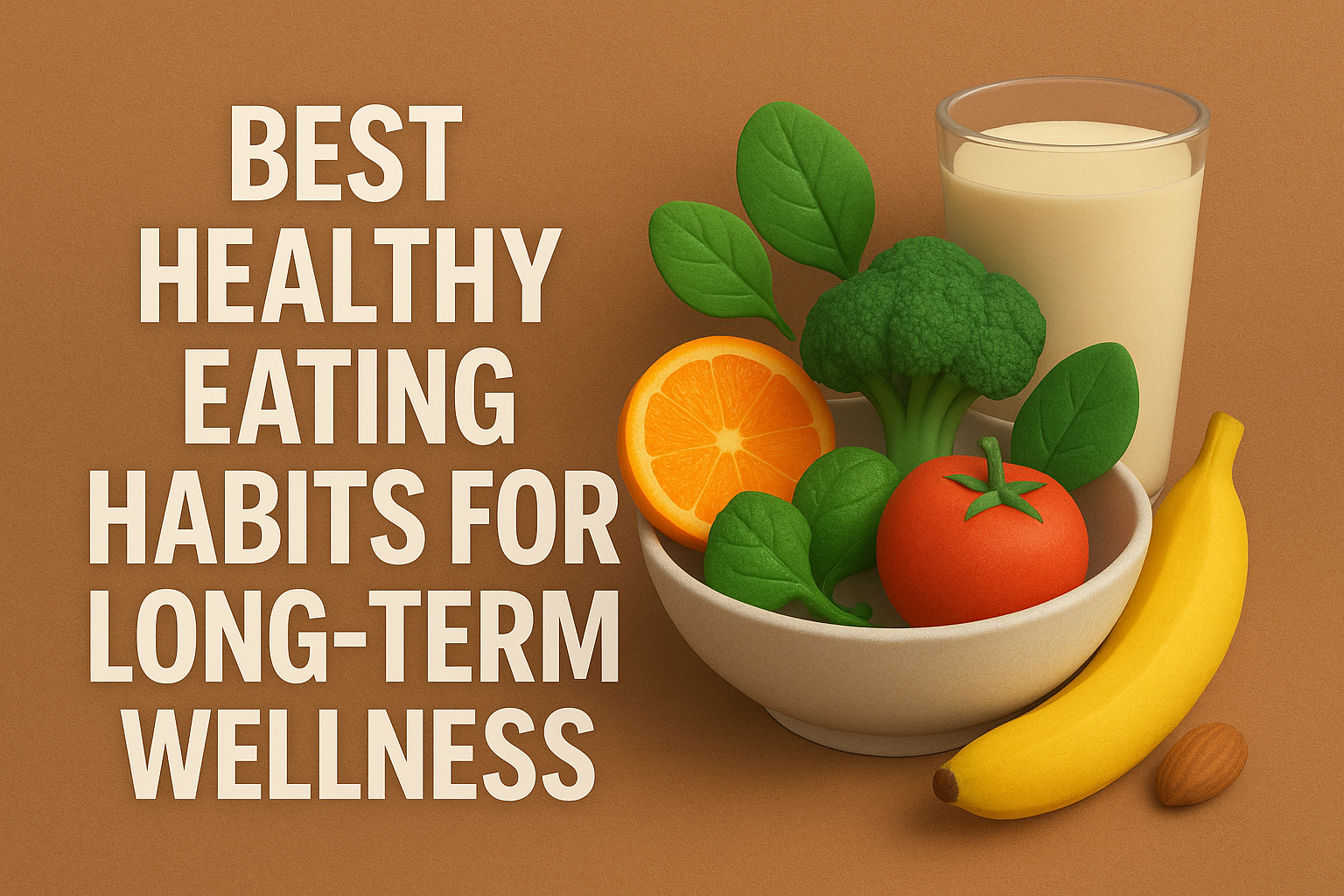Best Healthy Eating Habits for Long-Term Wellness
Healthy eating is not about strict dieting or giving up your favorite foods. It’s about making smart choices that help your body stay strong, energetic, and free from disease. Long-term wellness begins with daily habits that nourish your body from the inside out. Here’s how to build lasting healthy eating habits that support a balanced lifestyle.
1. Eat a Variety of Foods
Your body needs different nutrients to function properly. No single food provides all the vitamins, minerals, and energy your body needs. Include a wide range of colorful fruits, vegetables, whole grains, proteins, and healthy fats in your meals. Variety ensures you get the full spectrum of nutrients required for long-term wellness.
2. Focus on Whole and Natural Foods
Processed foods are often high in salt, sugar, and unhealthy fats. Instead, choose whole and natural foods such as fruits, vegetables, legumes, nuts, seeds, and whole grains. These foods contain more fiber and nutrients, which improve digestion and prevent chronic diseases like obesity and diabetes.
3. Control Portion Sizes
Even healthy food can lead to weight gain if eaten in excess. Portion control is key to maintaining balance. Use smaller plates, eat slowly, and stop when you feel satisfied — not full. Listening to your body helps prevent overeating and supports better digestion.
4. Eat Regularly and Don’t Skip Meals
Skipping meals can cause energy crashes and overeating later in the day. Eating at regular intervals keeps your metabolism active and maintains steady energy levels. Try to eat three balanced meals a day with one or two healthy snacks in between.
5. Include More Fruits and Vegetables
Fruits and vegetables are the foundation of a healthy diet. They are rich in vitamins, minerals, fiber, and antioxidants that protect your body from diseases. Aim to fill half your plate with vegetables and fruits at every meal. Fresh, seasonal produce provides the best nutrition and taste.
6. Stay Hydrated
Water is essential for every function in your body — from digestion to circulation. Dehydration can cause fatigue, headaches, and poor concentration. Drink at least 8–10 glasses of water a day, and include hydrating foods like cucumbers, oranges, and watermelon in your diet.
7. Choose Healthy Fats
Not all fats are bad. Healthy fats found in avocados, olive oil, nuts, and fish are essential for brain function, hormone balance, and heart health. Limit saturated fats and avoid trans fats found in processed snacks and fried foods.
8. Reduce Sugar and Salt Intake
Excess sugar increases the risk of obesity and heart disease, while too much salt raises blood pressure. Read food labels carefully, avoid sugary drinks, and replace salt-heavy snacks with healthier alternatives like fruits, nuts, or yogurt.
9. Practice Mindful Eating
Mindful eating means paying attention to your food — its taste, smell, and texture — without distractions like TV or mobile phones. This helps you enjoy your meals more and recognize your body’s hunger and fullness signals, preventing overeating.
10. Plan and Prepare Meals Ahead
Planning your meals helps you make healthier choices and saves time. Prepare weekly meal plans that include balanced breakfasts, lunches, and dinners. Home-cooked meals allow you to control ingredients and portion sizes more effectively.
11. Limit Junk Food and Sugary Beverages
Fast foods and soft drinks are loaded with empty calories and little nutrition. Regular consumption can lead to weight gain, fatigue, and digestive issues. Try replacing them with smoothies, fruit-infused water, or herbal teas for a refreshing, healthier option.
12. Eat with Family or Friends
Eating together encourages healthy habits and better food choices. Studies show that people who share meals with others tend to eat more fruits and vegetables and consume fewer processed foods. It also promotes emotional connection and relaxation during meals.
13. Balance Indulgence with Discipline
It’s okay to enjoy your favorite foods occasionally. The key is balance. If you indulge one day, make healthier choices the next. Long-term wellness comes from consistency, not perfection.
Final Thoughts
Healthy eating is a lifelong journey, not a quick fix. Start with small, realistic changes — like adding more vegetables to your meals or drinking an extra glass of water daily. Over time, these habits will become part of your lifestyle, helping you stay energetic, focused, and healthy for years to come.
Eat smart, live well, and let your food be your best medicine!
